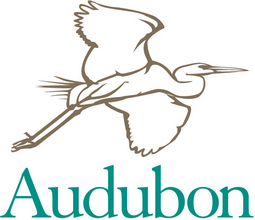Audubon’s Women in Conservation program provides career opportunities for young women in the environmental field. Each spring and summer, we offer seasonal positions for young women to advance our conservation work and further develop young conservationists’ skills and knowledge in the field of wildlife conservation. These positions provide an array of different professional experiences in conservation, including:
- Field research
- Habitat stewardship
- Education and outreach
- Communication
We are currently hiring two Women in Conservation (WIC) Technicians to work with our New York Coast program on Long Island, NY for the 2019 field season (early April – mid August). The WIC technicians will work closely with other Audubon staff to reduce threats to priority coastal birds like the Piping Plover, American Oystercatcher, and Least Tern. These positions focus on implementing public outreach, community engagement, and beach stewardship programs.
These positions also provide the opportunity to further develop leadership and communications skills. Communications work may include contributing photos and videos for reports and social media posts; delivering a public presentation; writing an article for an Audubon newsletter; performing outreach activities on the beach with volunteers and other staff; and participating in a press event. The technicians will have the opportunity to shadow other Audubon staff in New York and Connecticut. Also, the technicians will have the opportunity to connect with other conservationists and program supporters at the annual Women in Conservation Luncheon in May.
Work may include, but is not limited to: leading on-the-beach outreach events; coordinating a volunteer beach steward program; recruiting and training volunteers; coordinating schedules with partners, volunteers, and land managers; interacting with beach-goers regarding coastal birds; taking photos and videos of stewardship and outreach work; creating content for social media and other platforms; conducting coastal bird surveys; and, helping to steward beach-nesting birds and their habitats.
The candidates chosen for these positions will be expected to work 5 days a week (usually 40 hours). Weekend and holiday work will be required, especially in June and July. The technicians will be required to use their personal vehicle to access field sites that are located across Long Island. Travel to field sites will be reimbursed. Housing is not provided.
- Lead “Be a Good Egg” outreach events and volunteer programs
- Approach beach-goers and educate them about coastal birds and their conservation needs
- Encourage beach-goers to sign a pledge to “share the beach” with beach-nesting birds
- Recruit, train, and coordinate volunteers
- Coordinate with other staff, partners, and land managers
- Assist with beach-nesting bird stewardship, including installing and maintain fencing and signage around nesting areas
- Use binoculars and/or a spotting scope to locate, identify, and count Piping Plovers, Least Terns, American Oystercatchers, and migrating shorebirds
- Record and enter data into Excel and eBird as needed
- Post photos, updates from the field, and volunteer opportunities on social media
- Communicate shorebird conservation needs to the public through writing an article and/or delivering a public presentation
- Write an end-of-season report
- Strong communications skills and an interest in engaging and communicating with a diverse public audience
- A strong work ethic with comfort working in an independent environment
- Willingness to work outdoors for long periods of time in adverse conditions (i.e. hot, humid)
- Ability to walk long distances (up to 7 miles), transport and carry heavy equipment (tents, tables, post pounders, fence posts), and drive to beaches in eastern and western Long Island, NY
- Willingness to work on busy beach days, holiday weekends, and some evenings
- Prior shorebird and/or field experience is not required, but a willingness to learn about beach-nesting bird biology and conservation is
- Ability to speak Spanish and/or other languages is preferred but not required
